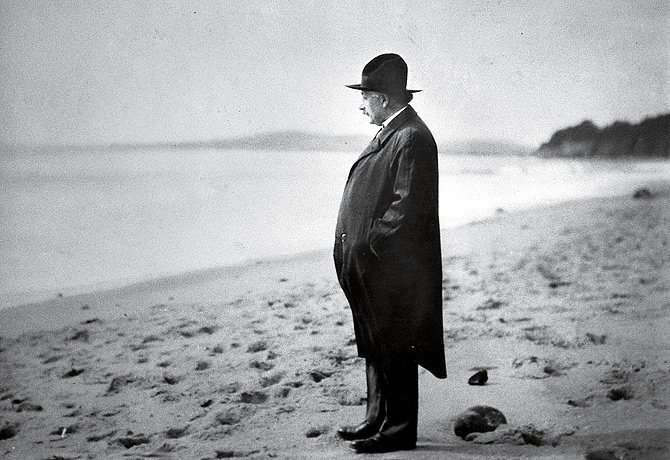

Prelude
Explorations in the Outer Realms of Human Thought
Albert Einstein's views on God developed as he sought to understand the fundamental nature of the universe and existence. As Einstein delved into the science of the universe in which we live, he also sought an understanding - through his own insight rather than religious doctrine - into the nature and cause of existence. Einstein's conclusions on the nature and cause of existence mirror Zoroastrian precepts.
Echoes of the Zoroastrian Quest for Understanding the Nature of Existence
Walter Isaacson in an April 2007 article in Time, wrote that Einstein came to reject the concept "of a personal God who intercedes in the daily workings of the world." Nevertheless, Einstein retained "a profound faith in, and reverence for, the harmony and beauty of what he called the mind of God as it was expressed in the creation of the universe and its laws." "He deeply believed that God's handiwork was reflected in the harmony of nature's laws and the beauty of all that exists."
Zoroastrian philosophy says that nature and the workings of the universe give us a glimpse into the working of God's mind, Vohu Mano. Through the workings of the universe, we can also begin to understand the universal laws, Asha, through which creation emerged and is sustained. The grandeur of nature contains a meaning far deeper than can be casually perceived on the surface.
Einstein's early reading included People's Books on Natural Science, a set of 21 volumes by Aaron Bernstein. Bernstein saw no contradiction between religion and science, and wrote "The religious inclination lies in the dim consciousness that dwells in humans that all nature, including the humans in it, is in no way an accidental game, but a work of lawfulness that there is a fundamental cause of all existence."
Zoroastrian philosophical precepts lead us to the conclusion that science observes and explains one aspect of Asha, universal order and laws.
The following is a selection of Einstein's thoughts on God and existence:
Einstein's Thoughts

"A spirit is manifest in the laws of the Universe - a spirit vastly superior to that of man, and one in the face of which we with our modest powers must feel humble. In this way the pursuit of science leads to a religious feeling of a special sort."
"The problem (of understanding the nature of God) involved is too vast for our limited minds. We are in the position of a little child entering a huge library filled with books in many languages. The child knows someone must have written those books. It does not know how. It does not understand the languages in which they are written. The child dimly suspects a mysterious order in the arrangement of the books but doesn't know what it is. That, it seems to me, is the attitude of even the most intelligent human being toward God. We see the universe marvellously arranged and obeying certain laws but only dimly understand these laws."
"Try and penetrate with our limited means the secrets of nature and you will find that, behind all the discernible laws and connections, there remains something subtle, intangible and inexplicable. Veneration for this force beyond anything that we can comprehend is my religion. To that extent I am, in fact, religious."
"The most beautiful emotion we can experience is the mysterious. It is the fundamental emotion that stands at the cradle of all true art and science. He to whom this emotion is a stranger, who can no longer wonder and stand rapt in awe, is as good as dead, a snuffed-out candle. To sense that behind anything that can be experienced there is something that our minds cannot grasp, whose beauty and sublimity reaches us only indirectly: this is religiousness. In this sense, and in this sense only, I am a devoutly religious man."